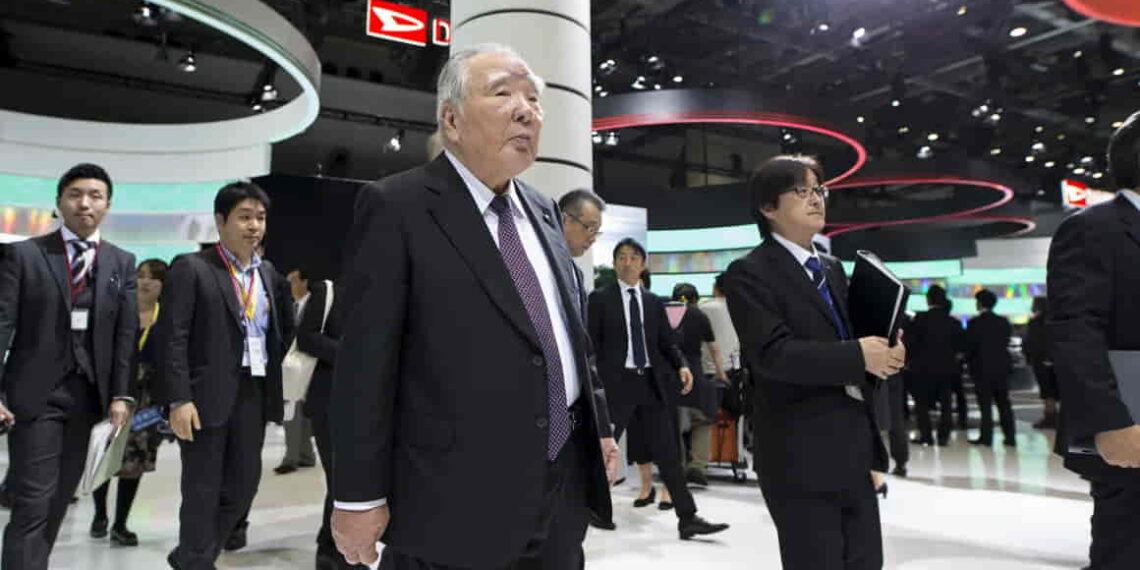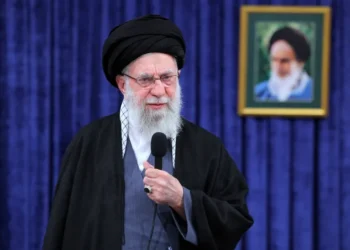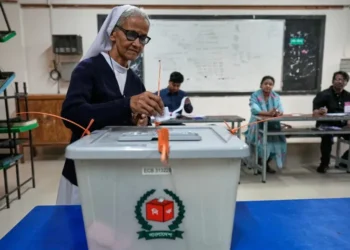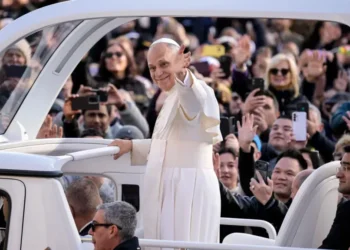Osamu Suzuki, Pioneer of Suzuki Motor and Indian Car Market, Dies at 94
Osamu Suzuki, the visionary leader who transformed Japan’s Suzuki Motor and played a pivotal role in shaping India’s thriving car market, passed away on December 25 at the age of 94 after battling lymphoma.
A Legacy of Thrift and Innovation
Suzuki’s leadership spanned over four decades, during which he steered Suzuki Motor beyond its origins in Japan’s minivehicle market. Known for his legendary thriftiness, he made cost-cutting a hallmark of the company. From lowering factory ceilings to save on air-conditioning to flying economy class well into his senior years, Suzuki’s penny-pinching ways were integral to the company’s success.
His commitment to Suzuki’s growth was unwavering. When asked how long he planned to stay at the company, his trademark response was always a playful “forever” or “until the day I die,” underscoring his deep attachment to the automaker.
A Storied Career
Born Osamu Matsuda, Suzuki took his wife’s family name upon adoption, a common practice in Japan for families without male heirs. He joined Suzuki Motor in 1958, working his way up the ranks and becoming president two decades later. During the 1970s, he saved the company from financial collapse by securing a deal with Toyota Motor to supply engines that met new emissions standards—something Suzuki Motor had not yet developed.
The company’s fortunes took another positive turn with the launch of the Alto minivehicle in 1979, which became an instant hit. This success laid the groundwork for Suzuki’s partnership with General Motors in 1981, boosting the company’s global bargaining power.
Suzuki’s Big Gamble on India
In the 1980s, Suzuki took a bold risk by investing a year’s worth of the company’s earnings to build a car manufacturing giant in India. At the time, India’s car market was underdeveloped, with annual sales below 40,000 vehicles, mostly outdated British models.
The Indian government had recently nationalized Maruti, a car manufacturer founded in 1971 with the aim of producing affordable cars for the masses. Maruti needed a foreign partner, but initial collaborations with Renault and other automakers fell through. In an unexpected twist, Suzuki stepped in after a company director saw a newspaper article about a potential deal between Maruti and Daihatsu, Suzuki’s small-car rival. Suzuki invited the Maruti team back to Japan, and within months, a partnership was formed.
In 1983, the Maruti 800, based on the Alto, was launched, becoming a massive success. Today, Maruti Suzuki, majority-owned by Suzuki Motor, still dominates around 40% of the Indian car market.
Cultural Changes in India
Suzuki didn’t just change India’s car industry; he reshaped workplace culture as well. He introduced new workplace standards, insisting on equality, open-plan offices, a unified canteen, and uniforms for all employees, whether executives or assembly-line workers.
Challenges with Volkswagen and Later Years
In 2009, at nearly 80 years old, Suzuki negotiated a high-profile partnership with Volkswagen. However, the collaboration soon soured, with both companies accusing each other of interference. Suzuki eventually bought back the 19.9% stake Volkswagen held in Suzuki Motor through international arbitration, ending the partnership.
Suzuki handed over the CEO role to his son, Toshihiro Suzuki, in 2016, though he continued to serve as chairman until 2021, keeping an advisory role until his death.
A Lasting Influence on the Auto Industry
Under his leadership, Suzuki formed a closer relationship with Toyota, which acquired a 5% stake in Suzuki Motor in 2019. Suzuki’s company is also set to supply electric cars to Toyota starting next year, ensuring his legacy lives on in the future of the automotive industry.
Akio Toyoda, chairman of Toyota, paid tribute to Suzuki, calling him not just a business leader but a father figure who pioneered Japan’s kei car (minivehicle) and made it a key part of Japan’s automotive identity.
Suzuki’s legacy is defined by his vision, frugality, and determination to innovate and expand Suzuki Motor on a global scale—particularly in India, where he turned a fledgling car market into one of the largest in the world.
This article was rewritten by JournosNews.com based on verified reporting from trusted sources. The content has been independently reviewed, fact-checked, and edited for accuracy, neutrality, tone, and global readability in accordance with Google News and AdSense standards.
All opinions, quotes, or statements from contributors, experts, or sourced organizations do not necessarily reflect the views of JournosNews.com. JournosNews.com maintains full editorial independence from any external funders, sponsors, or organizations.
Stay informed with JournosNews.com — your trusted source for verified global reporting and in-depth analysis. Follow us on Google News, BlueSky, and X for real-time updates.














